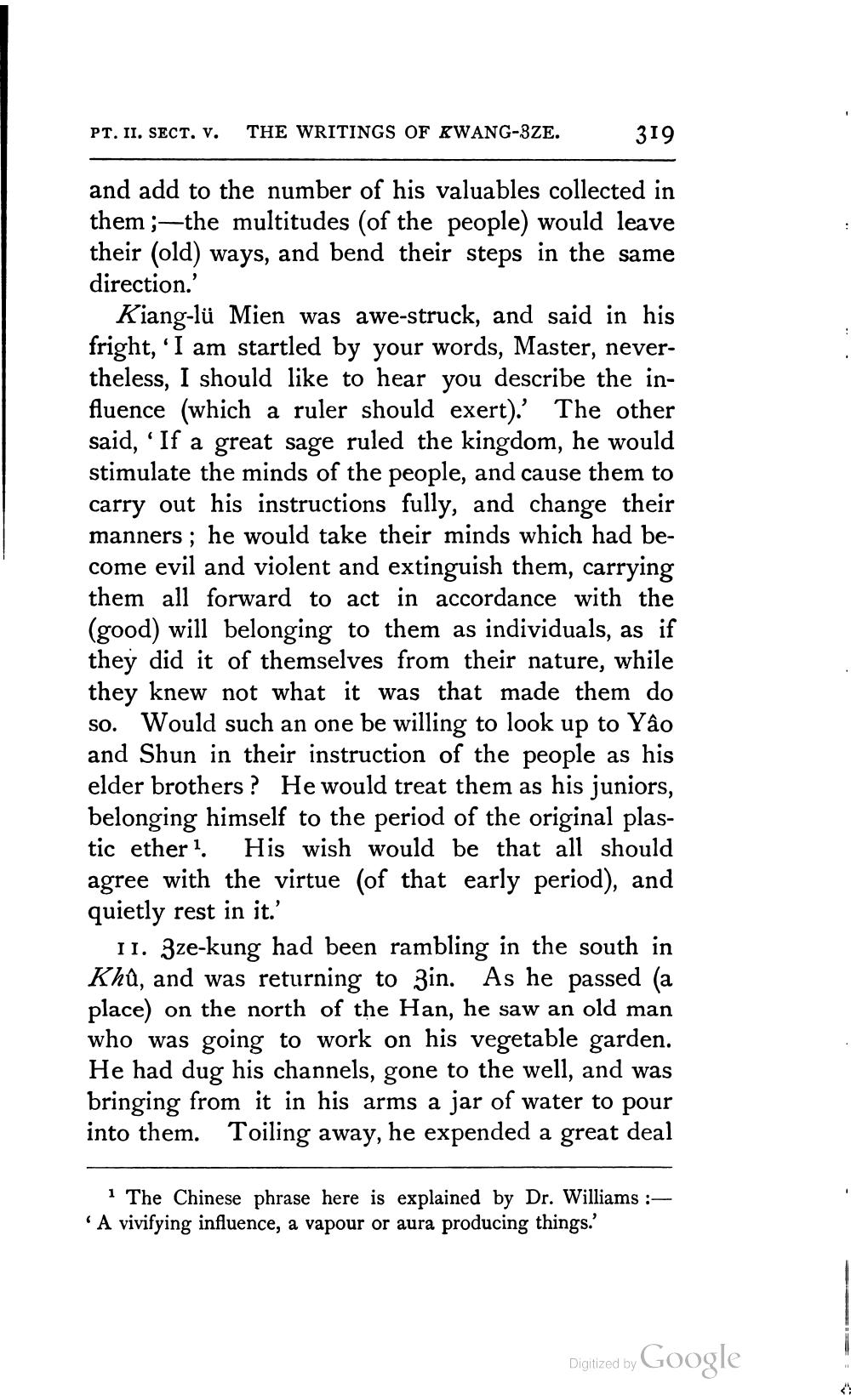________________
PT. II. SECT. v. THE WRITINGS OF KWANG-3ZE.
319
and add to the number of his valuables collected in them ;—the multitudes (of the people) would leave their (old) ways, and bend their steps in the same direction.'
Kiang-lü Mien was awe-struck, and said in his fright, I am startled by your words, Master, nevertheless, I should like to hear you describe the influence (which a ruler should exert).' The other said, 'If a great sage ruled the kingdom, he would stimulate the minds of the people, and cause them to carry out his instructions fully, and change their manners; he would take their minds which had become evil and violent and extinguish them, carrying them all forward to act in accordance with the (good) will belonging to them as individuals, as if they did it of themselves from their nature, while they knew not what it was that made them do so. Would such an one be willing to look up to Yão and Shun in their instruction of the people as his elder brothers? He would treat them as his juniors, belonging himself to the period of the original plastic ether 1. His wish would be that all should agree with the virtue (of that early period), and quietly rest in it.'
11. Zze-kung had been rambling in the south in Khủ, and was returning to Zin. As he passed (a place) on the north of the Han, he saw an old man who was going to work on his vegetable garden. He had dug his channels, gone to the well, and was bringing from it in his arms a jar of water to pour into them. Toiling away, he expended a great deal
1 The Chinese phrase here is explained by Dr. Williams :"A vivifying influence, a vapour or aura producing things.'
Digitized by Google




